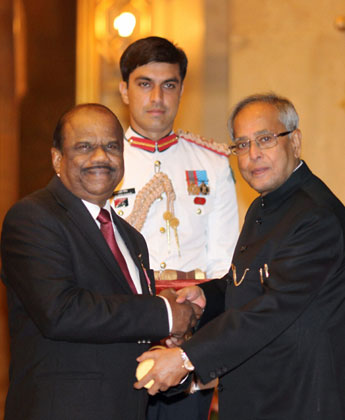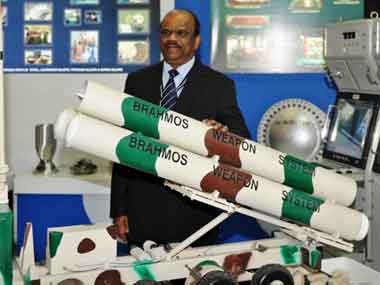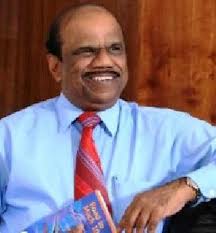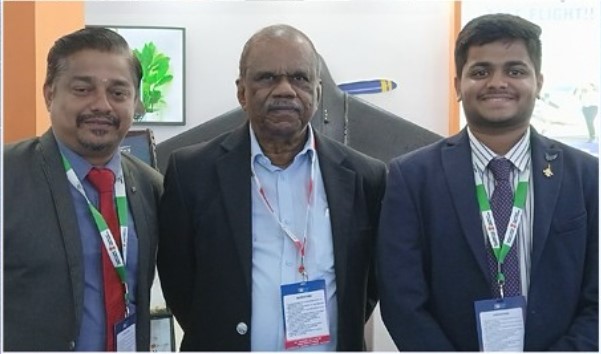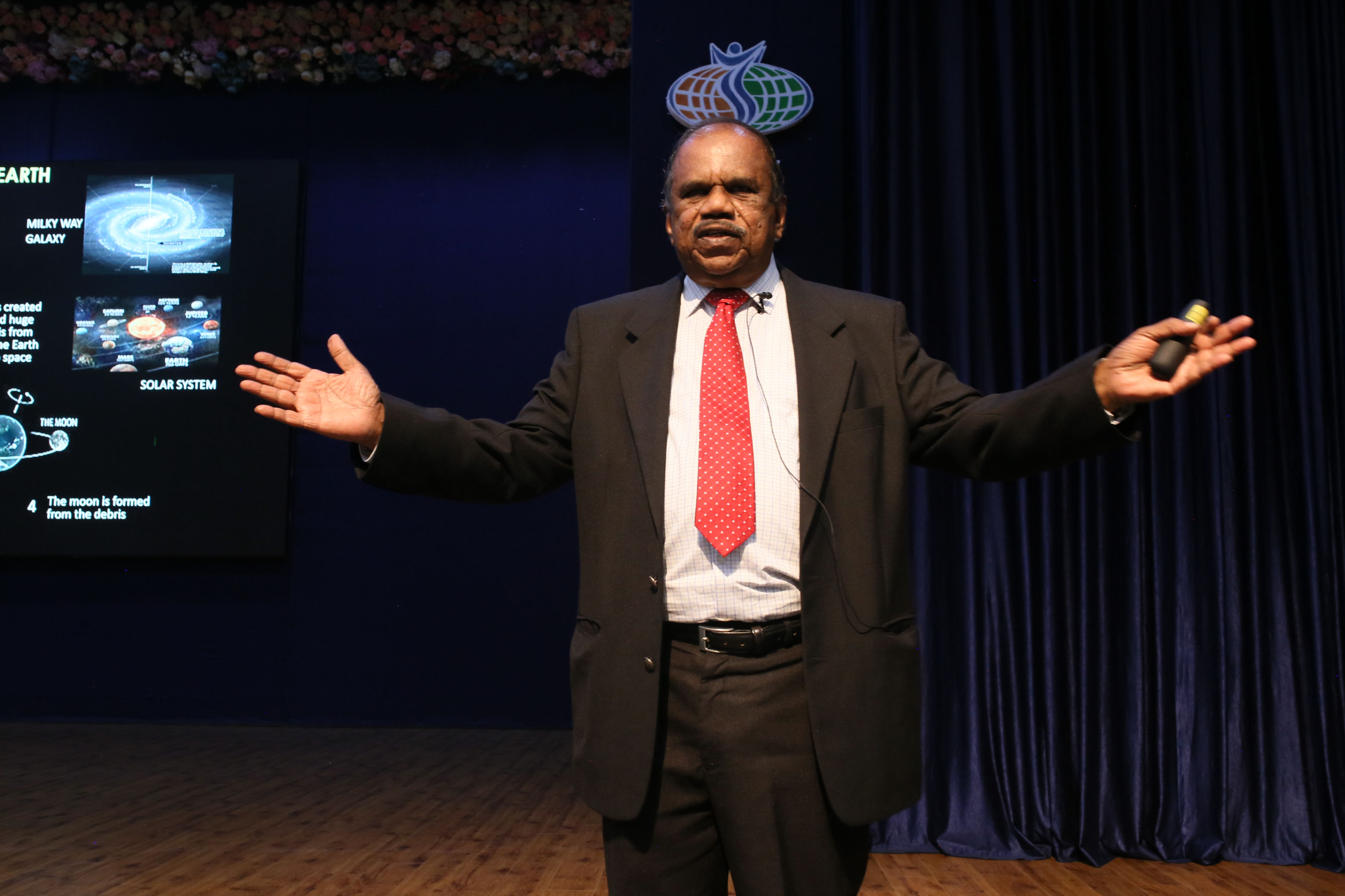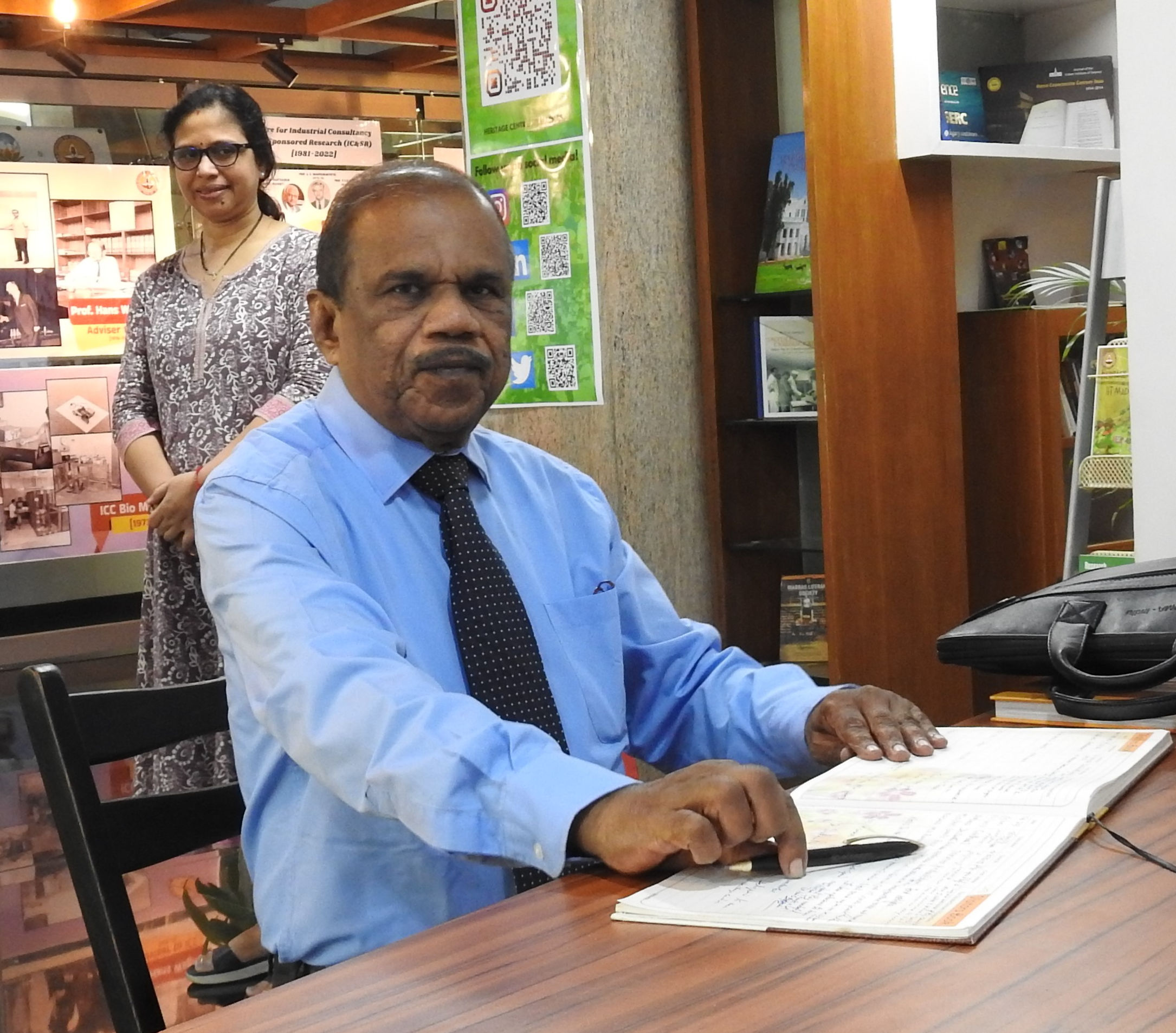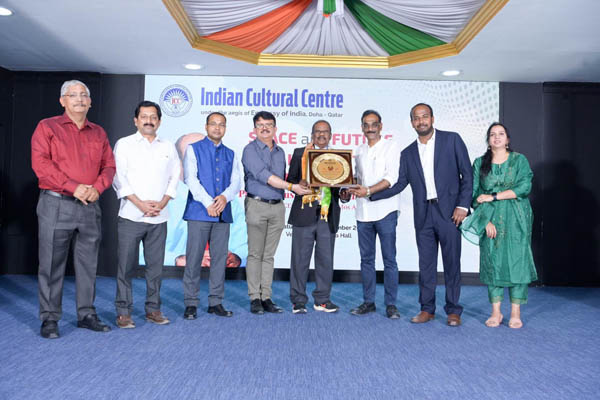Address during the Inaugural Function of 21st Global Symposium on
“Linking Project Mindset to Nation’s Prosperity”
by
Dr. A Sivathanu Pillai
02 December 2013
Respected Dr. M Veerappa Moily, Hon’ble Minister for Petroleum and Natural Gas, Respected Shri TKA Nair, Adviser to Prime Minister, Shri Adesh Jain and distinguished personalities on the dais, Project Professionals from IPMA, India and abroad; Office bearers of PMA, Ladies and Gentlemen. It gives me immense pleasure in sharing the dais with the Hon’ble Minister, Adviser to Prime Minister and to be part of this august gathering of the 21st Global Symposium on “Linking Project Mindset to Nation’s Prosperity”.
At the outset, I would like to congratulate Project Management Associates on its 20th Anniversary celebrations and in particular, Shri Adesh Jain, the Pithamaha of Project Management Movement in India, for his strenuous effort through creating number of Project Professionals through PMA Chapters all over India thus making the country a Project Oriented Society which is essential for Nation’s prosperity.
Ancient India was the fore runner of the world’s civilization and was the most prosperous region in the world. Great scientific thoughts and sacred books radiated from India to the whole world. Vedic sciences originated from India comprising theories of modern physics, mathematics, astronomy, cosmology, aviation, medicine, etc much before the Europeans documented them. Aryabhat – Astronomer and Mathematician was the first to proclaim that earth is round & rotates on its axis; Bhaskaracharya II – Genius in Algebra was the first to discover gravity, 500 years before Sir Isaac Newton; Acharya Sushrut - Father of Plastic Surgery prescribed treatment for different types of fractures & dislocations which is the basis for the modern Orthopaedics; Acharya Bharadwaj- Pioneer of Aviation gave the concept of man travelling between planets and gave 12 different types of configurations of orbiting platforms; Acharya Kapil - Father of Cosmology gave the concept of transformation of energy 5000 years ago; Acharya Kanad – Founder of Atomic Theory was the first to proclaim that "Every object of creation is made of atoms which in turn connect with each other to form molecules”;. These are few names to quote for the level of knowledge they possessed. The Indus Valley Civilization and the ruins of Mohenjo daro and Harappa bear testimony to the fact that even as early as 2500 B.C. India had skills to develop agriculture, drainage, pottery, tools, jewellery and artefacts. The first society established in Indus-civilisation became a model for the human race. Nalanda and Takshashila were the Knowledge Houses for the International Scholars with more than nine million books.
Rockets and satellites have become part of our life today, with great advancements of manned space travel. India’s quest for space has reached pinnacle with the satellite launched to orbit around the Mars. The Mangalyaan satellite has been successfully manoeuvred to escape the earth orbit and it is now on its way to Mars. Do you know which is the origin of Rocket Science? Where the first rocket was born? It was in 1792, when Tipu the ruler of Mysore Kingdom, deployed about 6000 rockets carrying sword as warhead against the British in Srirangapatna war and defeated them. So the First War Rockets were born at a place very close to the native place of our Chief Guest. After 1799, Ten thousand of these rockets were taken by the British to Woolwich Arsenal, near London. Thus, the British learnt the rocket science from India and they used it against Napoleon and later against the Americans in 1814 at Fort McHenry.
Recently, I came across a Book “The Wonder That Was India” written by an Australian, AL Basham first published in the year 1954. The author states, “India’s glorious past is embedded with a Rich Scientific and Technological Heritage from the Vedic age and is an inspiration to create a scientifically advanced and spiritually enlightened human society in which peace, prosperity and happiness together create a heaven on earth”. All the above indicate that we Indians belong to a Great Gene.
The great knowledge and mind power could not be accelerated further due to many invasions and most of them were not communicated through proper documentation. Moreover, the rivalries between the kings worsened the problem further. 18th & 19th Centuries were the crucial period wherein the Industrial revolution happened. West utilized these periods effectively and became the Developed World and prospered. We were left behind with poverty and slavery. After Independence, in India, thrust was given through Five year Plans for irrigation and agriculture. Realising the importance of industries, Govt. started industries as PSUs. Only a few private players like JN Tata, Walchand, participated in the industrial development in selected sectors. Over a period of time, PSUs’ started underperforming due to factors such as multi union rivalries prompted by political parties, Secured job even with underperformance and monopoly of the industry sector with huge Govt. originated orders with schedules not met. We continued to depend on import and the growth continued to suffer, and the PSUs incurred heavy losses due to unacceptable delays in Govt. sponsored projects.
Fortunately, Govt’s decision in 1991 on economic revival and globalisation, large scale participation of Private Industries, availability of educated youth and the English knowledge helping the ICT revolution, pushed the country’s economy upwards. This relief and the India’s Prosperity moving up the ladder can only be sustained if we concentrate on five key areas of growth namely: (1) Agriculture and food processing - with a target of 400 million tons per annum of food and agricultural products, bringing food security through the Second Green Revolution; (2) Education and Healthcare - aiming to increase the employment potential leading to social security and better quality of life; (3) Critical technologies and Industries – progressing all the sectors including strategic nuclear, space and defence technologies providing sustained growth and self-reliance for the nation; (4) Infrastructure development incl. reliable, quality, green electric power and availability of drinking water for all parts of the country; and (5) Information and Communication Technology - one of our core competencies, promoting education in remote areas and creating massive employment with rural development. These five areas are closely interrelated and can certainly lead to nation’s prosperity, if we focus on these missions and follow the Project Management Way.
Friends, if we can do great things and create history in the Past, what is that we are missing? What is that we need to correct? There seems to be an attitude problem. We are not able to shake ourselves. We have a settled mindset for limited achievement in our missions. We really do not care for the Schedule of Completion of these missions. We must break the bounds and establish a mind to achieve, a mind to be revolutionary not to accept the evils of today and to overcome the defeatist spirit and herald the message that WE CAN DO IT. We must shed the mindset of defeatism and energize ourselves with the spirit of confidence and victory with indomitable spirit to achieve our cherished missions to make India a Prosperous Nation by a strong Project Mindset.
I would like to conclude with a quote:
“If we are expected to Achieve Results never before Accomplished,
We must employ Methods never before Attempted,
But with utmost honesty”
Thank you
Click Here To Read Complete Lecture




